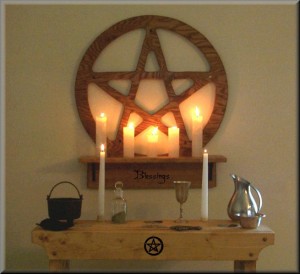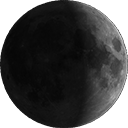What it Means to Be Pagan
In the past religion was very different. It didn’t have a moral component to it. It never acted as your moral code, or gave you rules as to what was good and what was bad. There was no heaven or hell, or no thoughts of where you would go based on your sins. Even though religion itself is very old, religion as we see it today with moral codes and rules is very new. Of course there are some who would disagree and to those I say do some research it’s all relative. So back in these times people were farmers or depended on farms for their goods and services. The sun, nature, water, land where understandably very important to the day to day survival of the population. So these farm base people came up with ways to remember the complex astrological movements of the sun. This is so they could track the sun which was responsible for their growing and harvesting seasons.
: Find hundreds of Wiccan spells :
For example in February they noticed the sun was always in a particular constellation of stars, so they called it Aquarius the water bearer, because the rains would be coming soon during spring. In fact the whole zodiac was filed with useful information that farmers could easily past down and use to feed their family. It wasn’t long into our history that humans were pretty in tune with nature and could easily predict the weather changes. We have other ways of predicting weather today, but back then it was essential knowledge for the population because it was a matter of life and death.
When Christianity rolled in, these earth views were in direct opposition to what was practiced and preached. Christians were pretty forcefully teaching that only God controlled the crops and that the only way to ensure your livelihood, the only way to feed and provide for your family was to pray to him. Reading the signs of the earth to predict the weather became known as divination or fortune telling which was considered sorcery and evil by the bible. The bible expressively tells its readers not to seek to know future events especially the weather.
Deuteronomy 18:10 “There shall not be found among you any one that maketh his son or his daughter to pass through the fire, or that useth divination, or an observer of times, or an enchanter, or a witch.”
So technically the weather report you watch on the news is blasphemy. Christianity still grew and spread mainly through the urban centers where farming was not as heavily relied on. These people in the city centers had other trades such as inn keeping, blacksmithing, and politics. In Latin pagan means rural or country dweller the word soon came to mean those who weren’t in the converted urban city centers, and those not easily reached by the Christian crusaders. Pagan soon came to mean anyone who didn’t follow the three main religions of Islam, Judaism, or Christianity who all share the same God.
Pagans were and still are everywhere, but they weren’t and still isn’t all the same. They were/are Celtics, Egyptians, Romans, Native Americans, and Greeks, each with their own take on nature and the earth cycles, magick, and philosophy. They each have their own story, own Gods and so forth but the basic concepts are hard to deny in similarity, because they all have earth and nature based cores.
Paganism was so effective that it stayed around through time. The pagan beliefs and how effective they were in reading nature never has left or went anywhere. Even till this day in farming cultures all over the world they have harvest festivals. In fact many Christians celebrate pagan festivals and don’t even realized it or they try to assign another meaning to the day. Thanksgiving for example is just like many pagan harvest festivals and includes many of the same activities such as, getting together with friends and family, giving thanks for the harvest, cooking a large meal, eating the biggest bird and so forth.
The pagan Easter was a fertility festival for centuries. Themes such as eggs and rabbits are pagan symbols of fertility. Chicks are of course younger versions of the bird we might come to eat at harvest or thanksgiving. The Christian Easter is about the resurrection of Christ but what does it have to do with an Easter egg hunt? Do you associated Easter with the resurrection of Christ or with the beginning of spring?
Also take into consideration Christmas. Christmas as most people celebrate it is actually a pagan celebration. Since the winter solstice (the shortest day of the year when the sun is the weakest) happens on the 21st it was during this time that pagans celebrated the birth of the Sun God. (21st the suns weakest state can be liken to being infantile, the baby sun growing and gaining more power and strength after that point). Keeping in mind that pagans view of religion was also a source of information to be able to track the growing season, Pagans called this time of celebration Yule, and did things very similarly to how Christians celebrate Christmas, they place logs in the fireplace, visited with friends and family, cooked large meals, exchanged gifts, singed songs, and decorated their home, this is all well documented “Pagan” behavior.
Jeremiah 10:2-4 : “Do not learn the ways of the nations or be terrified by signs in the heavens, though the nations are terrified by them. For the practices of the peoples are worthless; they cut a tree out of the forest, and a craftsman shapes it with his chisel. They adorn it with silver and gold; they fasten it with hammer and nails so it will not totter.”
Most Christians seem to think that the bible is not referring to the Christmas tree in this regard, but what seems to be obvious is that this Pagan tradition was considered to be heathenish, and was said to go against the ways of the lord. Whether or not you feel this is the case, if you think about your fondest memories of Christmas and what Christmas is, symbolized to you, etc, it would be the Christmas Tree. So what is Christmas to most people? Is it more like the Pagan Yule or is it REALLY about the birth of Jesus Christ?
This is what Pagan really mean. It is someone who worships the world around them, nature. Someone who aligns themselves with the natural forces of the world and all its energies. Are you Pagan?
